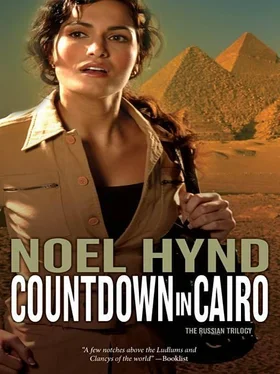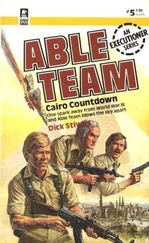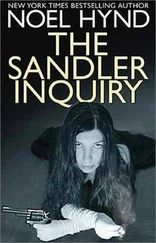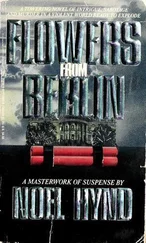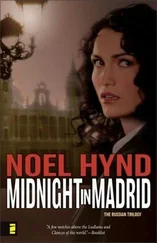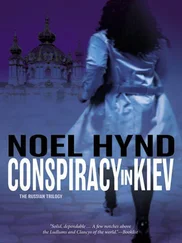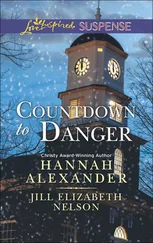Noel Hynd - Countdown in Cairo
Здесь есть возможность читать онлайн «Noel Hynd - Countdown in Cairo» весь текст электронной книги совершенно бесплатно (целиком полную версию без сокращений). В некоторых случаях можно слушать аудио, скачать через торрент в формате fb2 и присутствует краткое содержание. Жанр: Политический детектив, на английском языке. Описание произведения, (предисловие) а так же отзывы посетителей доступны на портале библиотеки ЛибКат.
- Название:Countdown in Cairo
- Автор:
- Жанр:
- Год:неизвестен
- ISBN:нет данных
- Рейтинг книги:3 / 5. Голосов: 1
-
Избранное:Добавить в избранное
- Отзывы:
-
Ваша оценка:
- 60
- 1
- 2
- 3
- 4
- 5
Countdown in Cairo: краткое содержание, описание и аннотация
Предлагаем к чтению аннотацию, описание, краткое содержание или предисловие (зависит от того, что написал сам автор книги «Countdown in Cairo»). Если вы не нашли необходимую информацию о книге — напишите в комментариях, мы постараемся отыскать её.
Countdown in Cairo — читать онлайн бесплатно полную книгу (весь текст) целиком
Ниже представлен текст книги, разбитый по страницам. Система сохранения места последней прочитанной страницы, позволяет с удобством читать онлайн бесплатно книгу «Countdown in Cairo», без необходимости каждый раз заново искать на чём Вы остановились. Поставьте закладку, и сможете в любой момент перейти на страницу, на которой закончили чтение.
Интервал:
Закладка:
It wasn’t something she heard or saw. It was something she could sense.
Moments after that, she felt the weight of another person settling onto the pew next to her. For a mad hallucinatory moment, she thought that it was Robert back beside her and that she had imagined all the horrid events of the last year. Then she thought it was Federov, that he had somehow managed to resurrect his energies, came down here, and found her. And then with an equally surreal jolt images came back to her, and she remembered how she and Robert had shared pews together in DC, back when she was several decades younger than she was now, just a year and a half ago. All of that seemed like a previous lifetime-and in a way it was, and in a way it wasn’t.
An arm wrapped itself around her shoulders. She didn’t resist. She knew who it was. She lifted her head and turned.
“You must have had quite a conversation,” Gian Antonio Rizzo said. “Quite a confession.”
“It was,” she said.
“Deathbeds will have that effect.”
She nodded.
“Life’s funny,” he said. “No matter where you are, there you are. So here you are.”
“Yeah. Thanks for being here with me,” she said.
Rizzo kept his arm wrapped around her. It was warm, comforting, and supportive. So were his eyes. She leaned to him and allowed herself to luxuriate in his embrace.
“You were wrong,” she said.
“About what?”
“I did manage to turn down the request of a dying man.”
“Oh. I see,” he said. At length, he asked, “Would it be vulgar of me to ask what the request was?”
“Marriage.”
“Marriage!” He seemed as stunned as she had been. “You and him?”
Alex nodded.
“You’ll excuse me, but, ha! ” he said. “The man was more of a deluded dreamer than I thought.”
“And that wasn’t even the worst of it,” she said.
“What was the worst of it?”
She told him. All of it. From Kiev through to the jungle of Venezuela, to Paris, back through recent days in Geneva, New York, and Cairo.
“Wow,” he said, blowing out a long breath.
“I’m wondering,” she said after a long, heavy silence, “if I had known along the way, if I had known for a fact what he just confessed to, that he was responsible for Robert’s death, for the slayings in Barranco Lajoya, for every single venal, hateful thing he’s done, I wonder if at some moment I might have just killed him myself.”
“But you didn’t,” Rizzo said. “You didn’t know and you didn’t kill him.”
“But should I have?”
“Killed him?”
“Yes.”
“Probably not.” He paused. “Did you ever suspect?” he asked.
There was a long silence.
“And would you have?” she finally asked. “If you knew that he’d taken the person you most loved away from you? Would you have just shot him?”
Rizzo’s gaze went far away and came back, much as Federov’s had several minutes earlier.
“I’m a religious man,” he said, “and maybe a little bit superstitious as well. So I’d prefer not to answer that in a place of worship.”
“I’ll take that as a yes,” she said.
“Take it instead as a maybe,” he said. “A definite maybe.”
She nodded. He took his arm away.
“And you?” he asked.
“What about me?”
“If you’d known, would you have killed him?”
She looked away from him and maintained another silence. When he looked back again, her eyes were moist, but something in them had changed-the compassion had changed to anger, or maybe something deeper.
“That’s what I thought,” he said.
He stood. He offered a hand.
“Come along,” he said. “I think it’s my duty right now to get you out of here.”
“Thank you,” she said, accepting his hand and standing.
By then, they had both had enough, so Alex and Rizzo slipped out of the Clinique Perrault without a further word to anyone.
They went for dinner at a small French place on the Place St. Francois. Alex was still in a mode of deep decompression after the visit with Federov, but Rizzo knew how to guide the events.
They split a bottle of wine and talked about life. Gian Antonio rose to the occasion as a gentleman par excellence and talked her out of her anger and depression and fury. The staff of the restaurant sensed that the two needed space and time and, for that matter, a second bottle of wine, so they provided one, a good Swiss one from the Rhone Valley.
She got back to the hotel shortly after midnight, moderately drunk, which was probably a good thing this evening. She crashed into bed and slept fitfully, unable to come down completely, unwilling to pop an Ambien or any other sleeping aide on top of the wine. She was victimized not by nightmares but by bad feelings about all the events of the last year and a half.
The stint in Madrid, the pursuit of the Pieta of Malta, was a small vacation in terms of the larger picture. But looking back on it, she could see the hand of Federov once again making the first moves toward forgiveness and contrition.
She wondered again: If she had known earlier, might she have killed him? Out of pure whim one day, might she have just drawn a weapon and shot him? She pictured herself doing it, probably when she was one-on-one with him in his magnificent study in Geneva.
But in truth, she would never know. It was the road not taken.
She fell into what passed for sleep around 5:00 a.m.
The phone woke her less than three hours later, exploding rudely at her bedside like a fire bell in the night. In a fog, she answered.
It was Rizzo. He asked if she had heard, and if not, he had news.
“Heard what?” she asked.
Federov, Rizzo explained, had slipped into a coma late the previous evening about the time that Alex had tipsily lurched from the restaurant while hanging on Rizzo’s strong arm. In the early morning hours, Federov’s heart had fluttered and then failed. Efforts by the Clinique to move him onto life support had also failed.
There had been no relatives listed with the Clinique. No friends, either. Aside from a solicitor, Rizzo was his only contact. So it had been Rizzo’s cell phone that the Clinique had called at six minutes past seven that morning when Yuri Federov had been pronounced dead at age forty-nine.
FIFTY-SIX
Over the course of the fifteenth century, terrible epidemics of plague, the black death, ravaged Europe. Switzerland was swept by the pestilence as much as any country, and in Geneva, the leaders of the city-in an attempt to quarantine the dying-built a hospital away from the city center. The building sat on a stretch of pasture land called Plainpalais, between the rivers Rhone and Arve.
The surrounding land took the name of the hospital-the plain palace-that stood on the site. And since death from the plague was almost inescapable for the afflicted, it was only a matter of time that the vast fields surrounding the building became burial grounds.
Plainpalais Cemetery, also known as La Cimetiere des Rois, was located on rue des Rois in the center of Geneva. Over the centuries, it had also become the largest cemetery in Geneva. As Federov had indicated, and as Alex had already known, Plainpalais was a peaceful, quiet place, filled with a small settlement of old burial vaults and tomb markers. The pathways within the cemetery were lined with large, aging trees, and there was a bittersweet air to the place, somewhat like the famous Cimetiere Pere Lachaise in Paris.
Some of the gravestones dated back to the late fifteenth century, and notables of Genevois history had been laid to rest here. Here lay John Calvin, the Protestant reformer; Augustin de Candolle, the botanist; Guillaume-Henri Dufour, the engineer and general; James Fazy, jurist and statesman; Emile Jaques-Dalcroze, composer; Charles Pictet de Rochemont, diplomat; as well as many others who, in the course of five centuries, had played a major role in Geneva’s history.
Читать дальшеИнтервал:
Закладка:
Похожие книги на «Countdown in Cairo»
Представляем Вашему вниманию похожие книги на «Countdown in Cairo» списком для выбора. Мы отобрали схожую по названию и смыслу литературу в надежде предоставить читателям больше вариантов отыскать новые, интересные, ещё непрочитанные произведения.
Обсуждение, отзывы о книге «Countdown in Cairo» и просто собственные мнения читателей. Оставьте ваши комментарии, напишите, что Вы думаете о произведении, его смысле или главных героях. Укажите что конкретно понравилось, а что нет, и почему Вы так считаете.
